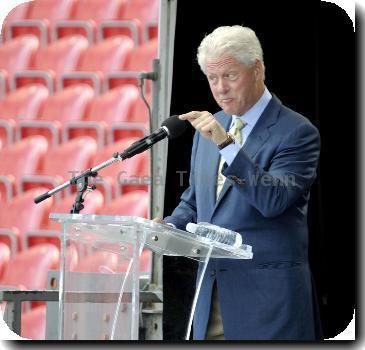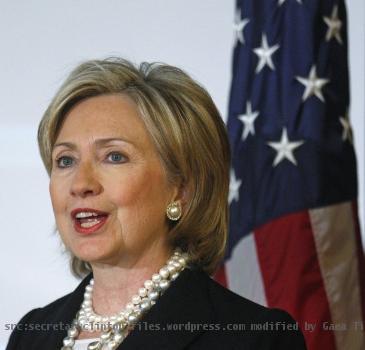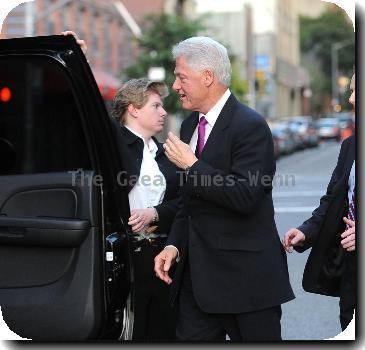George Steinbrenner remembered as an intense figure with charitable heart
By Howie Rumberg, APTuesday, July 13, 2010
Steinbrenner remembered for his bluster, charity
NEW YORK — George Steinbrenner was suspended from baseball for trying to disgrace his high-paid outfielder, Dave Winfield.
A low point for “The Boss,” for sure. But rather than let the episode fade away, the Yankees owner reached out nearly a decade later to repair the rift.
For those who knew Steinbrenner, behind a feisty facade was a fiercely loyal friend.
“It’s almost like you see a curtain drawn back, a veil lifted, just a complete change,” Winfield said of Steinbrenner after the reconciliation. “And our relationship changed from then on. And we got to know each other real well. I know that over the years, he admired me, he respected me and he liked me. And I did the same with him. It was very important.”
The 80-year-old Steinbrenner died in Tampa, Fla., early Tuesday after having a heart attack. He was remembered as much for his dictatorial style as he was for his generosity.
“I think he’s a father figure to everyone that was in our organization in the past or present, because he really took care of his players,” Yankees captain Derek Jeter said.
Flags were lowered to half-staff at New York’s City Hall and a marquee outside the $1.5 billion Yankee Stadium — “the house that George built” — honored “George M. Steinbrenner III, 1930-2010.” At the All-Star game in Anaheim, Calif., a video tribute was shown, and players bowed their heads during a moment of silence.
Steinbrenner was exacting and ruthless in running the Yankees. Hall of Fame catcher Yogi Berra, who went 14 years without talking to his boss after being fired as manager in 1985, said they’d leave the phone off the hook in the dugout for fear of getting a call from the owner.
The Boss’ bluster made him as famous as many of his players, a fixture on the back pages of the New York tabloids — right where he wanted to be.
He was even lampooned on “Seinfeld,” a No. 1 television show in the 1990s. And Steinbrenner got a laugh out of the bumbling portrayal, voiced by the show’s executive producer, Larry David.
“Who else could be a memorable character on a television show without actually appearing on the show? You felt George even though he wasn’t there,” said Jerry Seinfeld, the star and co-creator of the show. “That’s how huge a force of personality he was.”
His players felt the outsized personality in many ways.
Those who put on the pinstripes were paid handsomely, but they knew the expectations that came with the paycheck were more intense than anywhere else.
“I remember my first, second year, I was on third base and got doubled off on a line drive in the infield and we won the game. After the game he was yelling at me for, ‘Don’t ever get doubled off again,’” Jeter said. “We won the game, but he expected perfection, and that rubbed off. And whether it was the players, the front office, the people working at the stadium, didn’t make a difference. He expected perfection.”
Paul O’Neill, a fellow native Ohioan, was one of Steinbrenner’s favorites during the team’s championship run of the late 1990s and 2000 because of his intense demeanor and scrappy style of play. Steinbrenner, a former football coach, bestowed upon him the highest form of praise, calling him a “warrior.”
“I think our careers, our mindset, our lives changed because of his being our owner,” said O’Neill, now an analyst for the Steinbrenner created YES Network. “He kept that urgency of winning every single day, the expectation of winning. You can talk about that, but to truly believe it is different things.”
Buck Showalter, manager of the Yankees from 1992-95, added: “He made me very accountable. You know the job description going in. That’s why you don’t complain about it.”
Steinbrenner’s autocratic leadership style was apparent from the very beginning.
In 1960, when he was owner of his then-hometown Cleveland Pipers of the American Basketball League, Steinbrenner handed out his first pink slip — he changed managers 21 times and got rid of more than a dozen general managers with the Yankees.
The first victim was GM Mike Cleary.
“He came in and said, ‘You’re fired’,” Cleary recalled. “I said, ‘I quit.’ Later we became good friends.”
Berra was fired just 16 games into the 1985 season, and kept his vow that he would stay away from Yankee Stadium until Steinbrenner apologized. He did in 1999.
“He said, ‘It was the worst mistake in my life,’” Berra said Tuesday at his museum in New Jersey. “We became very good friends.”
Fay Vincent, the commissioner who banned Steinbrenner for using a self-proclaimed gambler to try and dig up dirt on Winfield, came to admire the owner over the years.
“I think the earlier misjudgments and mistakes he made disappeared as a he got older,” Vincent said. “I think he wanted to be a great man in the image of Gen. George Patton, but I think he turned out to be a man for whom you could have great respect. He was a remarkable man, not a great man.”
Peter Ueberroth preceded Vincent as commissioner in the 1980s. He had a similar take on the larger-than-life Yankee.
“He was irascible and complicated, but he will be remembered as a major pillar of the national pastime,” Ueberroth said. “His generosity to those in trouble is always understated because he often gave substantially without fingerprints.”
A media hound when it came to baseball matters, Steinbrenner was equally reserved in matters of charity. And he gave plenty — especially in his adopted hometown of Tampa.
Steinbrenner had no connection to Virginia Tech, but after a gunman killed 32 students on the campus in 2007 he donated $1 million to the “Hokies Spirit Memorial Fund” and sent the Yankees to Blacksburg, Va., for an exhibition game.
“To respond to a need as he did and put it into action tells me everything about what kind of a human being he was,” Virginia Tech baseball coach Pete Hughes said. “It was an immediate response, too, by him — ‘How can we help them?’ — and within 24 hours, the logistics of that game was being talked about.”
A graduate of Williams College, Steinbrenner, nonetheless, funded the Ohio State marching band for years — his name is on a campus building.
“Mr. Steinbrenner and his wife were the driving force behind the new marching band facility in Ohio Stadium,” said Jon Waters, assistant band director. “We will always remember George Steinbrenner’s love of music and his love of the Ohio State University marching band.”
He was charitable with his time and money before he became the Yankees owner in 1973.
“I met George when I was 9 years old on a baseball field in a Cleveland public park. I prefer to remember him as a young man who encouraged girls and boys to play sports with enthusiasm, skill and courage,” said Donna E. Shalala, University of Miami President and former Clinton cabinet member, of the man who taught her how to slide.
Steinbrenner was such an outsized figure that even President Bill Clinton had some fun with his blustery persona when the Yankees visited the White House after their 1999 World Series championship.
“On that day at the White House, as we walked out on the South Lawn together and the band struck up ‘Hail to the Chief,’ Bill playfully reminded George, ‘Don’t get any ideas, it’s not for you,’” recalled Hillary Clinton, the former first lady and current secretary of state. “But George always had his own song. They say that if you can make it in New York, you can make it anywhere, and nobody knew that as well as George Steinbrenner.”
AP Baseball Writer Janie McCauley in Anaheim, Calif., Associated Press Writer David Porter in Little Falls, N.J., and AP Sports Writers Tom Withers in Westlake, Ohio, Hank Kurz Jr. in Richmond, Va., and Ronald Blum and Rachel Cohen in New York, contributed to this report.
Tags: All-star game, Bill Clinton, Derek jeter, District Of Columbia, Florida, Friendships, George steinbrenner, Hillary Clinton, New York, New York City, North America, Ohio, Professional Baseball, Relationships, Tampa, United States, Yogi berra



